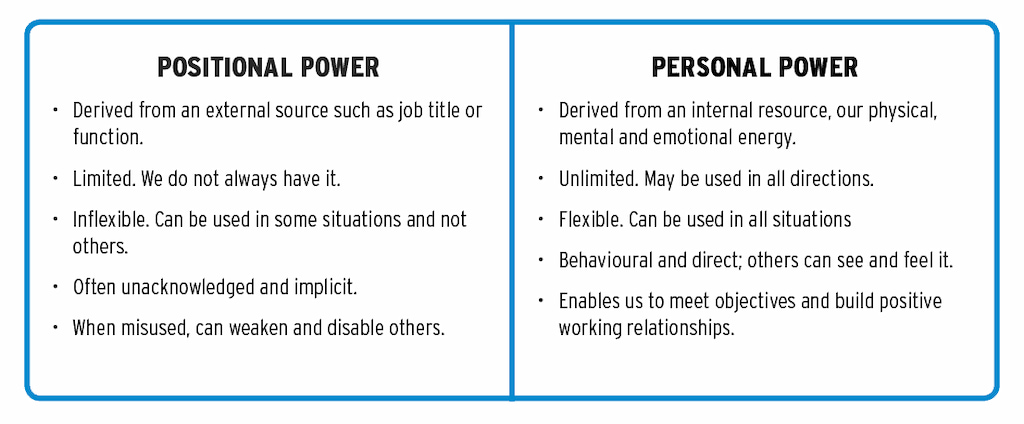In an ever-changing business landscape, becoming an expert in your chosen field is now more critical than ever. For example, if your career goal is to rise through the ranks at your company, you must be motivated and possess some form of expert power. (Tools like Basecamp time tracking can help you manage your projects efficiently). The good news is that with the right tools and the right attitude, anyone can possess the power of expertise. This article explores the value behind expert power and how it can help you move your career forward.
What is Expert Power?

To truly understand what it is, we must first define expert power. Expert power means having expertise in a subject area and sharing this knowledge with those around you. This expert power definition is quite open, but we’ll delve deeper into how it manifests itself shortly.
Expert power is a valuable commodity in the business world—the ability to influence others because of your expertise in a specific area will mean people gravitate toward you. Expert power usually stems from a person’s qualifications, but that does not mean it is a static concept. In fact, having the ability to adapt is vital to maintaining expert power status. In a fast-changing world, the power that comes from being an expert in an area is less valuable than your ability to influence others by continuously evolving your expertise to meet the requirements of the day.
❓ How does expert power differ from other types of power?
To fully understand expert power, we need to explore how it differs from other types of power. There are two main types of power: positional and personal. Positional power is given to you through positions and titles. For example, you have positional power if you’re a manager at a company. Personal power, on the other hand, is unique to individuals and isn’t dependent on position or title.

Expert power fits into the personal power category, meaning you can develop it wherever you are in your career. It’s important to note that positional power does not guarantee expert power. However, possessing expert power opens doors that may lead to positional power.
Examples of Expert Power in Action
The best way to understand the concept is to explore some examples of expert power. A good expert power example is a team member that speaks French. They derive their expert power from being the only person in the team to speak the language, allowing them to take on projects that others might not have access to. Additionally, team members will come to them with queries relating to their language skills, making them an indispensable part of the team.
Let’s have a look at some more expert power examples. Tom is an IT employee at a company that sells goods online. One day, a problem occurs, and the company website crashes, meaning online sales come to a complete standstill. Tom is the only person who can fix the issue, and he can do so quickly—this gives him expert power at his company. Without Tom’s expertise, the company would have lost hundreds (or thousands) in sales. So even though Tom isn’t in upper management, he still holds personal power in the form of expert power.
Another example: think of a manager who has expert power relating to sales techniques, let’s call her Rosie. Rosie started as a sales executive, rose through the ranks over time due to her expertise, and became a manager. In this instance, Rosie possesses personal power due to her expert status and positional power due to her management position.
Pros and Cons of Expert Power
Now that we know the definition of expert power and we’ve explored some examples, it’s time to consider the pros and cons of possessing it.
✅ Pros
Competitive edge
Possessing expert power gives you a competitive edge in your industry that may help you succeed in your career. Employers value employees with specialized skills and knowledge, as it can help them branch out into new business areas. For example, suppose you have expert power in an in-demand area, such as programming, software development, cybersecurity, architecture, graphic design, or other similar roles. In that case, you may be the perfect candidate for high-paying roles where qualified individuals are in short supply.
Respect

Individuals with expert power are usually well-respected by those around them. Therefore, people are more likely to trust your judgment and follow your advice if they see you as an expert in a particular area.
Leadership skills
Having specialized knowledge can help you develop vital leadership skills. If your plan is to manage a large team at a later stage in your career, you need to demonstrate that you have the skills and knowledge to make good decisions, welcome a range of opinions, and treat others with respect. Plus, if your team feels they can trust your judgment due to your expert power status, they’ll feel motivated to get behind you!
❌ Cons
Maintenance
To maintain expert power, you must continuously learn about your area of expertise. Almost no topic stays still—new knowledge is discovered, or new ways of thinking come into being. Failing to keep up with these developments will mean you lose your expert power. To maintain your expert status, you need to put in the work!
Excessive self-reliance
In some cases, having expert power may make you too self-reliant in that you focus too much attention on your own judgment and forget to consult others. This can be a particularly negative trait in a manager, as it may result in team members feeling ignored and alienated.
Can create friction in the team

Occasionally, sharing your expert power with others may create friction in a team and change group dynamics for the worse. For example, a team member may suggest a way of doing something, and you might tell them their suggestion isn’t right in a way that comes across as condescending. You may not mean to be condescending, but there is a very fine line between sharing your expertise and talking down to others. To appear less condescending, be comfortable with listening more and talking less in some situations. It might be tempting to interrupt someone if you realize they’ve made a mistake and you have the knowledge to correct it. However, always let people finish what they’re saying before you start talking.
Why is Expert Power Important?
Having expertise power in a particular field gives you the ability to influence others and make a positive impact on improving your life and the lives of those around you. In some cases, individuals with expert power have the ability to make a difference in the world. For example, scientists and inventors have expert power, and their discoveries and inventions have revolutionized our lives. Workplaces that hire employees with expert power also have a major competitive advantage, and their work may elevate the company and the industry to another level through innovation.
How to Develop Expert Power

If you’re keen to possess expert power, you need to put the work in. It can easily come to you if you follow these steps:
Study and practice
You must immerse yourself in your subject area to build expertise. This may involve reading, attending lectures, seminars, group workshops, and networking with experts. Be mindful that you can’t have expert power in everything (as wonderful as that would be), so try not to spread yourself too thin!
Finding a mentor
As you develop your knowledge in your chosen field, it helps to have a mentor who can help guide you. Good mentors share common characteristics—they’re flexible, good listeners, non-judgmental, honest, respectful, and experts in their field. A mentor will likely also have connections in the field, enabling you to network with others and make the most of the opportunities they present to you.
Maintaining credibility
On your expert journey, you must work to maintain credibility at all times, as it is what gives you the power to be influential. To maintain credibility, you must keep up-to-date with the latest developments in your area of expertise, as this will ensure that you offer sound advice and expert opinion. You must also be honest. If you don’t know the answer to a question, it’s alright to admit it. Attempting to bluff your way through will only damage your credibility.

Similarly, you should be able to own up to your mistakes. We all make mistakes occasionally, and admitting when you’re wrong will help keep your credibility intact. You should also be consistent in what you say and what you do—inconsistency will eventually lead to others doubting you. Finally, you should be open to new ideas, even if they challenge your current beliefs. Showing others that you’re willing to learn and grow will add to your credibility.
Being solutions-oriented
Being solutions-orientated is a key component of expert power. Adapting your mindset in this way will allow you to identify problems and offer up solutions to them using the knowledge you’ve gathered. In order to be solutions-orientated, you need to have a deep understanding of your chosen field and be up-to-date on the latest developments. A good way to demonstrate that you’re becoming an expert that is solutions-orientated is to show others how you’ve solved problems. One way to do this is to share case studies where you outline how you helped someone solve a problem.
Never stop learning
We’ve already established that to become an expert in your chosen field, you need to study and practice. But possessing power goes beyond that. True experts see learning as a lifelong commitment. To develop expert power, you need to read relevant publications and blogs to keep up with current industry trends and stay ahead of the curve. You should also take classes or enroll in relevant courses—perhaps you’ll earn certifications to show others that you’re highly qualified. The bottom line is that the power isn’t static; it has to be maintained.
Be confident

By possessing expertise, you have the ability to influence the thoughts and behavior of those around you. In order to communicate to others that you have it, you need to be confident. However, confidence can quickly slide into arrogance if left unchecked. Arrogance or an inflated ego will damage your credibility and drive people away, so confidence should be tamed with modesty.
The best way to appear confident is to be friendly and genuine when interacting with others. If you are truly passionate about your area of expertise and have the desire to use it for good, others will feel drawn to you. People are far more likely to pay attention to and collaborate with someone who is authentic and sincere, so focusing on building up your confidence is vital.
Final Thoughts
Becoming someone who possesses expertise is a journey—it won’t happen overnight. If you set your career goals, by studying and practicing your craft, finding a mentor, maintaining credibility, being solutions-orientated, and committing to lifelong learning, you can become an expert in your field. However, you can’t get there without tracking your progress and the time you spend cultivating your expertise. That’s why you need a time tracker. But which time-tracking tool is best for you?
Everhour offers all the tools you’ll need to succeed on your journey. The time tracking software offers various valuable features to help you gain that status, either as an individual, a manager, or an employee. Key features include a time clock app, a work hours tracker, an attendance tracker, and a timesheet app that makes your life easier when it comes to employee time tracking. In addition, you can integrate Everhour with dozens of popular apps, including Asana, Trello, Monday, and many more. So if you’re planning to become an expert in a specific area, consider using Everhour to track your progress.
If you are managing a team of 5 or more and looking to boost efficiency, Everhour is the perfect tool to keep your team on track. With seamless time tracking, you can easily estimate task durations, set clear budgets, and generate detailed reports inside Asana, Trello, Jira, or any other pm tool.

